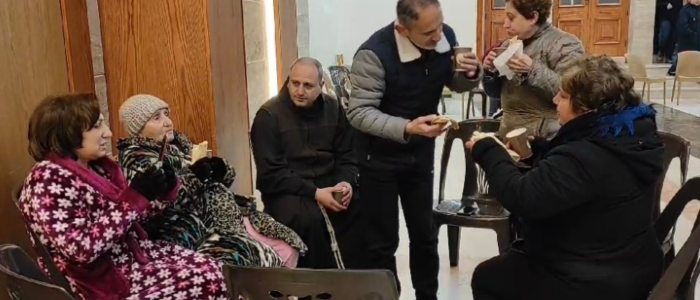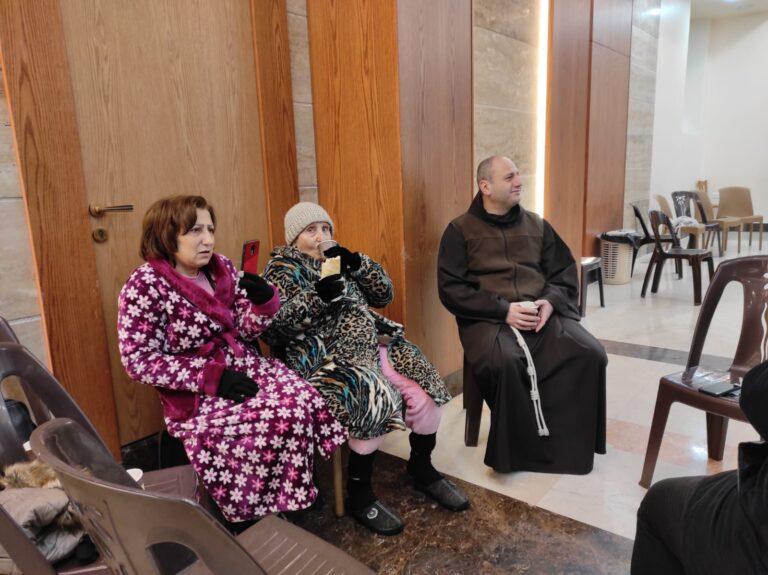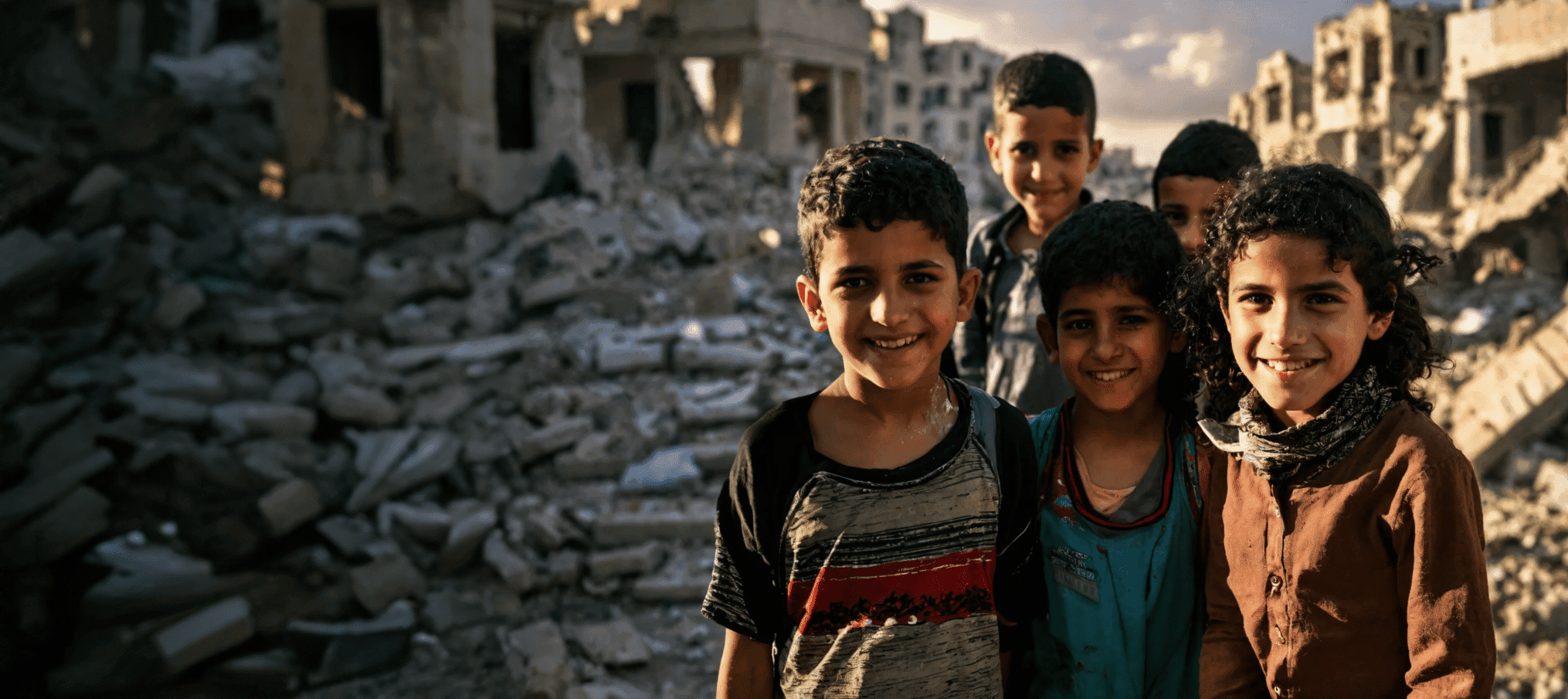"Think that today in Syria, an average salary is equivalent to $10 a month. There is truly extreme poverty that touches all levels of practical life, from eating, to medical care and education."
With these words Father Bahjat Karakach recounts the difficulties of those who live in Syria today.
Born and raised in Aleppo, Father Bahjat studied and lived several years in Italy. In October 2022 he returned to his hometown, where today he is parish priest of the local Latina community.
Every day he has to face the difficulties dictated by the Syrian political and economic situation. Aleppo is one of the cities most affected by the war, to which are added the damage caused by the earthquake of last February. Today, those who did not die because of war or earthquake have migrated elsewhere. But who is left what challenges do they face? Is there hope even within this evil? We asked Father Bahjat who, on a visit to Italy, testified that good always sprouts, even in the darkest situations.
Father Bahjat tell us about your mission in Aleppo, what are the challenges you face every day?
This is a very difficult question, I do a little bit of everything. My mission is not limited to a simple traditional service to the parish. With the other friars we have expanded our activities to respond to the urgent needs of the population. We have created a machine of economic and humanitarian assistance projects at all levels. For example, in collaboration with Pro Terra Sancta, we offer psychological assistance to children affected by war. Then we created a sports center that became a meeting place for families and children. In addition, always with the help of Pro Terra Sancta, we have been able to create a canteen that can feed almost 1200 people every day.
We also have educational projects in East Aleppo as psychotherapy activities for orphaned children, children of former combatants and abandoned children. Through art and sport we try to offer them relief and collaborate with the best professionals, or at least with those who remained.
Is there hope for the future? Is there anything that despite the evil still manages to amaze?
After long years of war, there is still no prospect of a solution. Having hope is a challenge that we face with difficulty every day, and especially for us religious, who are a bit of a point of reference for the locals, it is not always easy to look to the future.
However, what strikes me positively is to see that, despite all the evil we are surrounded by, there are people who put themselves on the line to change and improve the situation. It is beautiful to see that I am not alone in facing all this, I always find around me men and women who give body and soul to do good. Perhaps the goodness, the desire to do of the people of Aleppo are the only resources we have left.

How has Syria changed in recent years?
The war has profoundly marked Syria, causing a radical change in the social fabric. I always say that I have returned to a country that is unrecognizable from all points of view. The family, which was the pillar of society, has now undergone great changes. Many families are scattered around the world, therefore, the comfort that a person used to find in loved ones is now gone, or if there is it is weak. Having friends has also become a luxury. People have to work three jobs a day to keep themselves at their lowest levels, who has more time to cultivate friendships?
The recent earthquake has further aggravated the situation. In Italian we say "There is no limit to the worst". No one would have imagined that we could live anything worse than war. The primary security of having a home has vanished under the rubble. Housing insecurity adds to economic challenges, and the risk of homelessness poses a new threat to many families.
How has war changed the relationship between Christians and Muslims?
We cannot generalize. We can speak of two tendencies, a suspicious one that has been exacerbated by war and another, which I would define as the good that sprouts from evil. The war fueled mistrust, but at the same time the reshuffling of the population was an opportunity for dialogue and encounter that produced a new discovery on both sides. Good can germinate even in the most absolute evil. These are small stories, but it is nice to give voice to the beauty that is born, even in this evil.
Could the latest political developments in the region lead to any change in Syria?
There has been no sign of positive change, so we can't predict with certainty what concrete plan is behind it. It is ugly to say, but the poor people here are so disheartened that they do not place any hope in political agreements, they are just trying to survive.












